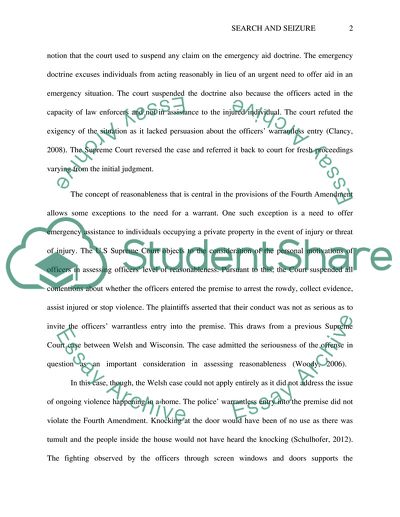Cite this document
(“The Fourth Amendment, Search and Seizure Essay Example | Topics and Well Written Essays - 1000 words”, n.d.)
The Fourth Amendment, Search and Seizure Essay Example | Topics and Well Written Essays - 1000 words. Retrieved from https://studentshare.org/law/1625787-case-concerning-the-4th-amendment-search-and-seizure
The Fourth Amendment, Search and Seizure Essay Example | Topics and Well Written Essays - 1000 words. Retrieved from https://studentshare.org/law/1625787-case-concerning-the-4th-amendment-search-and-seizure
(The Fourth Amendment, Search and Seizure Essay Example | Topics and Well Written Essays - 1000 Words)
The Fourth Amendment, Search and Seizure Essay Example | Topics and Well Written Essays - 1000 Words. https://studentshare.org/law/1625787-case-concerning-the-4th-amendment-search-and-seizure.
The Fourth Amendment, Search and Seizure Essay Example | Topics and Well Written Essays - 1000 Words. https://studentshare.org/law/1625787-case-concerning-the-4th-amendment-search-and-seizure.
“The Fourth Amendment, Search and Seizure Essay Example | Topics and Well Written Essays - 1000 Words”, n.d. https://studentshare.org/law/1625787-case-concerning-the-4th-amendment-search-and-seizure.


